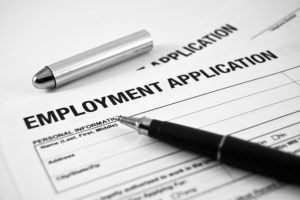
Did you know that in Arkansas it is against the law to mispronounce "Arkansas?" Or that in New Jersey it's illegal for a man to knit during fishing season?
Last year, Olivet Nazarene University released an infographic of outrageous laws from the 50 states of America. The infographic was quickly picked up by other media and went viral.
It's easy to see why. Did Hawaii really feel the need to legislate that coins cannot be placed in one’s ears? How many people do the North Dakota police actually arrest for lying down and falling asleep with their shoes on? And what’s the story behind Washington's law against harassing Bigfoot "or other undiscovered subspecies"?
Yet while these laws seem amusing and even frivolous, there are others that can greatly affect a person's everyday life.
OUTRAGEOUS JUSTICE
American states have legislated outrageous consequences for those convicted of felonies. While justice is necessary to maintain a stable society, many people with criminal records struggle with the collateral consequences placed upon them after completing their sentences.
In Utah and Louisiana, students with a criminal record are ineligible to receive state-based financial aid from any program. As a result, students are at a disadvantage to empower themselves through education and to become productive members of society.
The state of Colorado has over 700 legislated collateral consequences. One such consequence states that the license for the operation of a business enterprise for a blind vendor is to be suspended or revoked for any misdemeanor or felony conviction. Another makes barbers and cosmetologists ineligible for their licenses. Furthermore, anyone convicted for any felony can’t serve as an assistant to a bingo caller.
Do we want people with criminal records to find legitimate means to support themselves? And if so, should we make it nearly impossible for them?
THE SECOND PRISON
It is sometimes logical to deny a former prisoner access to an occupation directly related to his or her crime. It's understandable that a person who has committed fraud might not be allowed to work in an investment bank. But laws that bar former prisoners from educational and vocational opportunities because they have a criminal record is detrimental to our economy and society.
Keeping a person from furthering their education or supporting themselves in a legitimate occupation also leads to recidivism. An endless cycle of incarceration keeps our society unsafe and is also costly to taxpayers.
SECOND CHANCE MONTH
Prison Fellowship® is advocating for a justice system that restores. One that supports Americans once they’re released from prison. Thus, we seek to establish fair policies that help returning citizens reach their potential.
That’s why Prison Fellowship is declaring April Second Chances Month. As we prepare to celebrate Easter, we are reminded of the transformative power of redemption found in Christ. Christ has made it possible for each of us to have a new beginning. Therefore, we seek to help returning citizens progress and thrive after their incarceration is complete.
GET INVOLVED
Petition your government leaders to declare April Second Chance .
Also, you can participate in one of Prison Fellowship's Second Chances 5Ks! This year we run in Denver and St. Paul.
Or run on your treadmill or in your neighborhood! Post a photo on social media and tag us in it. And be sure to use the hashtags #secondchancemonth or #secondchances. You can find Prison Fellowship on Facebook, Twitter, and now Instagram.
Together we can end the second prison.